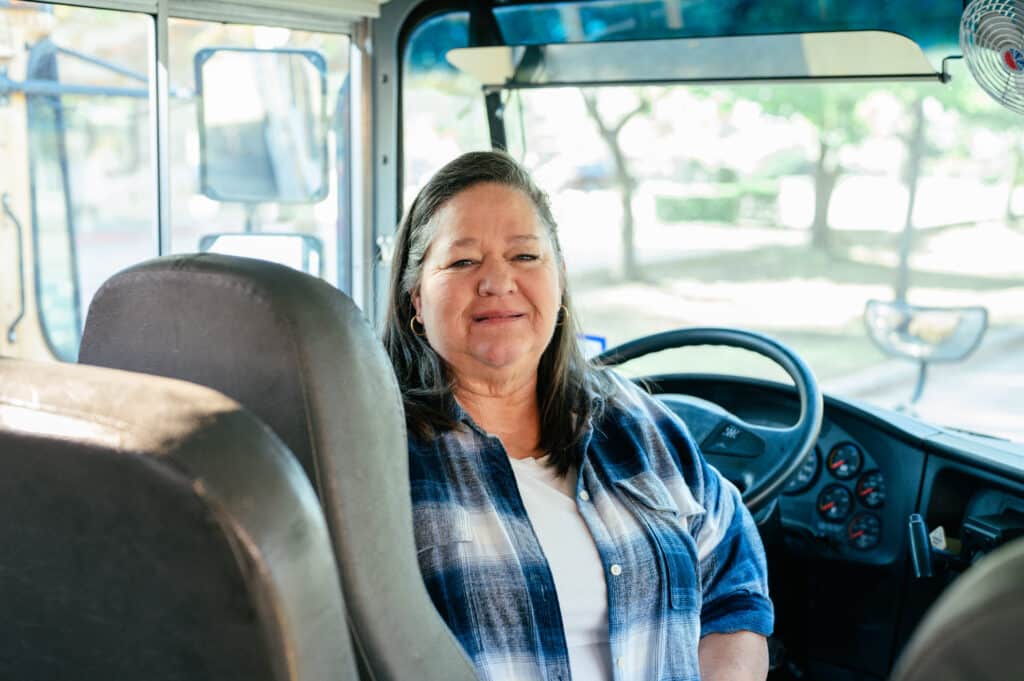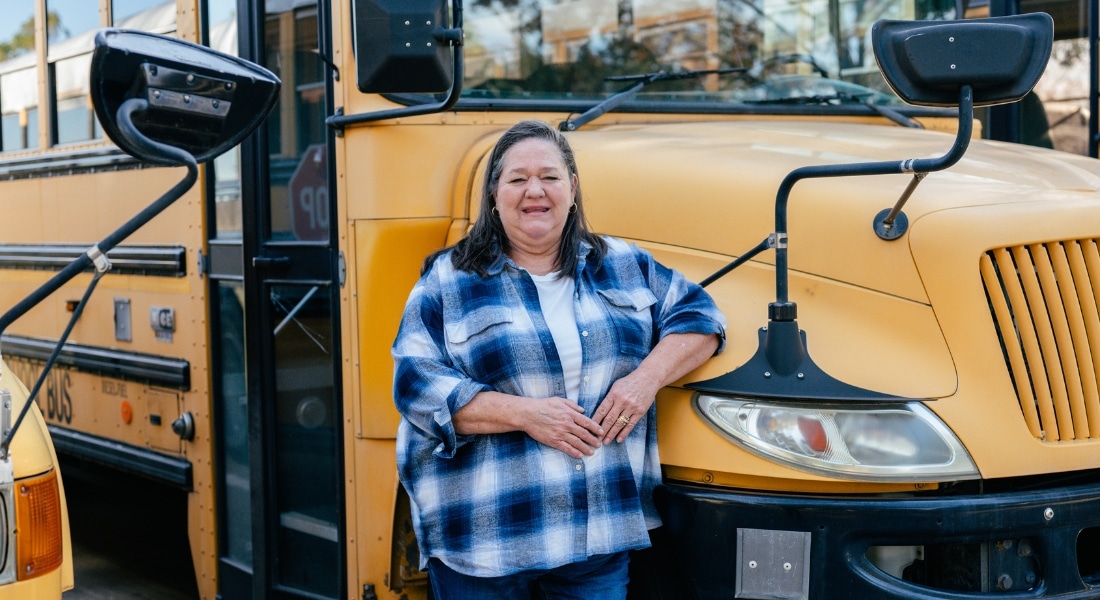Multiple surgeries failed to heal a series of hernias for Delonda Faltesek, so she turned to Methodist Richardson Medical Center when her condition became life-threatening.
“They saved my life,” Delonda says. “I would recommend Methodist to anyone.”
Over the years, Delonda, who works at Oak Park School in Garland and loves spending time with her four grandchildren, learned to live with her discomfort and simply kept buying bigger clothes to hide her abdomen.
“I put on a pair of jeans the other day that I haven’t been able to wear in years,” she says. “My stomach went down a good 7 inches.”
Today, Delonda is recovering thanks to a GI team led by Joseph Buell, MD, a surgeon on the medical staff who specializes in abdominal wall reconstruction.
“My team was incredible, from the nurses to the techs and lab staff,” she says. “They went above and beyond.”

‘I DIDN’T WORRY’
Not every day was miserable for Delonda in the years before she finally had her nine hernias corrected in August 2024.
“If it didn’t hurt, I didn’t worry about it,” she says. “I was always worrying about everybody else.”
But what Delonda didn’t realize was that her colon was gradually becoming blocked by scarring, the result of nine ventral hernias.
In June, suffering from diarrhea that would not stop, she visited a hospital where the staff scanned her belly and advised her to see a gastroenterologist. However, she couldn’t get an appointment until three months later.
But emergencies can’t wait, and her condition would soon turn dire.

9 HERNIAS IN ALL
Delonda got sicker and sicker that summer until she was bedridden in crippling pain. This time her husband took her to the emergency room at Methodist Richardson with a blocked colon that was near perforation, a condition that can be fatal.
“She came in with a total bowel obstruction,” says Dr. Buell, who was on call the day she came in.
One of Delonda’s hernias was the size of a tennis ball. Her intestines were pushing through each of them, a condition that surgeons call “Swiss cheese” hernias because there are so many holes in the abdominal tissue.
“She came to us after she was seen at another facility where they felt her case was too complex,” Dr. Buell says. “Her colon was twisted, scarred, and obstructed.”
The surgeon quickly determined that Delonda’s abdominal wall had been patched with four kinds of mesh and a variety of metal and plastic tacking screws from prior surgeries.
Trust your gut to advanced GI care at Methodist by finding a digestive health specialist near you. Visit MethodistHealthSystem.org
BACK TO NORMAL
Dr. Buell specializes in the use of biologic meshes that reinforce the muscle flaps while decreasing the risk of infections and long-term complications.
That’s because these materials don’t contain toxic metals. They dissolve and are absorbed as water and carbon dioxide months after surgery, once the abdominal muscles have grown back together.
“We want to take these patients who present the greatest challenges and try to get them back to a normal life,” Dr. Buell says.
In order to prevent re-infection and help the wound heal faster, Dr. Buell employed a technique called vacuum-assisted closure of a wound (wound VAC) over the biologic mesh — a sponge attached to suction that pulls out fluid as the skin gradually comes together.
“Dr. Buell was just amazing,” Delonda says. “He was thorough, knowledgeable, answered all our questions, and spent time with us.”

‘CHANGED HER LIFE’
Delonda traces the start of her hernia problem back to the mid-80s when she gave birth and was left with an unusually long vertical caesarean section.
“Once you have a hernia in the middle of the abdomen, things pull out laterally,” Dr. Buell explains, “and you have to figure out how to close the defect.”
Over the years Delonda gained weight, another common contributor to abdominal hernias. But Dr. Buell and his team were able to repair the damage, this time for good.
“We gave Delonda an intact and physiologically whole abdomen back,” he says, “and it changed her life.”
Today, Delonda knows she is lucky to be alive, and she is making changes to her diet and fitness so she can keep up with her grandchildren and the kids at Oak Park School.
“I feel great,” she says. “I’m eating healthier because I do not want to get back in that shape.”






